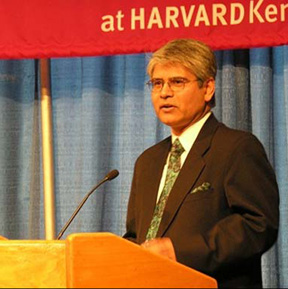 UNITED NATIONS: India has called for the early adoption of a global convention on terrorism with a legal principle of “prosecute or extradite”, even as it voiced concern over the UN appearing “ineffective” in tackling the global scourge.
UNITED NATIONS: India has called for the early adoption of a global convention on terrorism with a legal principle of “prosecute or extradite”, even as it voiced concern over the UN appearing “ineffective” in tackling the global scourge.
On the issue of terrorism, the United Nations has “appeared ineffective, though both the Security Council and General Assembly have adopted either resolutions and sanctions regimes or strategies to counter terrorism over the past 15 years,” India’s Ambassador to the UN Asoke Mukerji said at a General Assembly session on ‘Report of the Secretary-General on the Work of the Organization’ here yesterday.
He said that as many as 31 entities within the United Nations deal with some aspect of countering terrorism.
“The need for us to agree on a coordinator for the work of these entities is a priority which we cannot postpone. Our public consciousness is being ravaged daily by incessant acts of terrorism targeting innocent people, our civilisational heritage and increasingly, the socio-economic infrastructure of our societies, especially in vulnerable developing countries,” he said.
Mukerji said India looks forward to the Secretary General’s initiative on countering terrorism and expressed hope that his initiative will include a roadmap to assist the international community adopt the long-pending Comprehensive Convention on International Terrorism “at the heart of which is the legal principle of ‘prosecute or extradite’.”
He said the cumulative impact of conflicts and crises in the world is being felt by almost 60 million people, innocent men, women and children.
Yet the report is “strangely silent” on why the UN Security Council, which has the primary responsibility under the UN Charter for the maintenance of international peace and security, has allowed such a mushrooming of crises to occur.
Mukerji stressed that the ineffectiveness of the Security Council is due to the unrepresentative composition of its permanent members 70 years after 1945.
He reiterated the need to make the Council fit for purpose for the 21st century.
Mukerji emphasized the importance of the interlinkage, and impact of a supportive and stable political environment for the successful implementation of the ambitious 2030 development agenda.
“It is self-evident that political instability deters the flow of investments, technology and trade, and consequently severely restrict prospects for sustained socio-economic growth. In a globalised world, our overarching objective of eradicating poverty by 2030 from our planet will be jeopardized unless we adopt a holistic approach,” he said.
He also told the UN body that India is organizing the third India-Africa Forum Summit later this month at which it has planned the participation of all 54 African countries, the single biggest diplomatic event held in India since 1983.
“We aim to build on our traditional bonds of political and socio-economic relations with Africa, and take advantage of the new technologies which will enable us to accelerate our common developmental aspirations,” he said.–PTI





